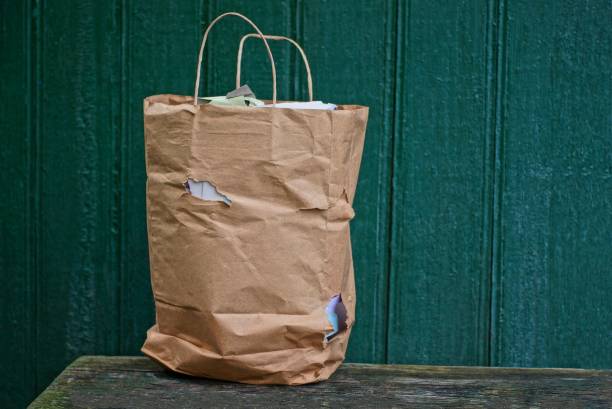In an era where sustainable choices are becoming increasingly essential, eco-conscious consumers are exploring alternatives that minimize their environmental footprint. While both jute and paper bags are eco-friendly options, there are compelling reasons why jute bags outshine paper bags when it comes to sustainability, durability, and overall impact. Here’s a closer look at why jute bags are an excellent choice over paper bags.

1. Durability and Longevity
Jute bags are inherently strong and long-lasting, often withstanding years of use. They are made from natural jute fibers, known for their durability, which means these bags can hold heavier loads without tearing or losing shape. Paper bags, on the other hand, are prone to ripping, especially when carrying heavier items or when they get wet. A jute bag can be reused countless times, reducing the need for single-use bags and ultimately lowering waste.
2. Environmentally Friendly Production
While paper bags are often made from recycled materials, the production process still requires significant amounts of energy, water, and chemicals to convert wood pulp into paper. Deforestation, one of the major environmental issues associated with paper production, contributes to habitat loss, biodiversity reduction, and increased carbon dioxide levels.
Jute, however, is a natural plant fiber that grows quickly and requires minimal water and pesticides, making it an inherently sustainable crop. It even enriches the soil it grows in, and it can be harvested within 4-6 months, making it a renewable resource. In terms of carbon footprint, producing jute bags is much gentler on the environment than producing paper bags.
3. Biodegradability and Compostability
Both jute and paper bags are biodegradable, but jute bags have the added benefit of being compostable. When a jute bag reaches the end of its life cycle, it decomposes naturally and returns valuable nutrients to the soil without releasing harmful toxins. This process is faster and leaves no trace in the environment, making jute bags a fully circular product.
4. Style and Versatility
Jute bags have evolved beyond their traditional uses and now come in a variety of stylish designs, colors, and sizes. From grocery shopping to fashion accessories, they are versatile enough to suit multiple purposes. Paper bags, while functional, lack the durability and aesthetic appeal that jute bags offer. Jute bags can be designed to suit specific branding needs, making them an attractive choice for businesses looking to promote their brand sustainably.
5. Economic Impact and Support for Farmers
Choosing jute bags supports sustainable agriculture and provides employment to millions of farmers, particularly in countries like India and Bangladesh where jute farming is a major source of livelihood. By purchasing jute bags, consumers contribute to the economic welfare of these communities and support sustainable agricultural practices.
6. Water Resistance
Jute bags have a natural resistance to water and moisture, especially when laminated. This makes them a more practical choice in a variety of weather conditions and settings. Unlike paper bags, which quickly deteriorate when wet, jute bags can endure exposure to moisture without losing their strength or usability. This water resistance adds to their lifespan, further reducing the need for frequent replacements.
7. Cost-Effectiveness Over Time
Though jute bags may have a slightly higher upfront cost than paper bags, their reusability and durability make them a more economical choice in the long run. With proper care, a jute bag can last for years, offering far greater value than single-use or short-term alternatives like paper bags. For businesses and individuals alike, investing in jute bags reduces the long-term costs associated with constantly replacing less durable options.
8. Carbon Footprint and Sustainability
The jute plant absorbs large amounts of carbon dioxide from the atmosphere, making jute production carbon-negative. This means that the jute plant helps reduce greenhouse gases in the atmosphere, contributing to a healthier planet. Paper production, however, is energy-intensive and contributes to deforestation. The overall environmental impact of jute is significantly lower than that of paper.
Conclusion
While paper bags are a step up from plastic in terms of environmental impact, jute bags provide a more sustainable, durable, and versatile solution. With a lower carbon footprint, longer lifespan, and natural biodegradability, jute bags represent a true eco-friendly choice that aligns with a sustainable future.
Switching to jute bags means not only choosing a product that benefits you but also making a positive contribution to the planet and supporting sustainable livelihoods worldwide. So next time you’re choosing between a jute or a paper bag, go for jute—it’s the small switch that makes a big difference!

